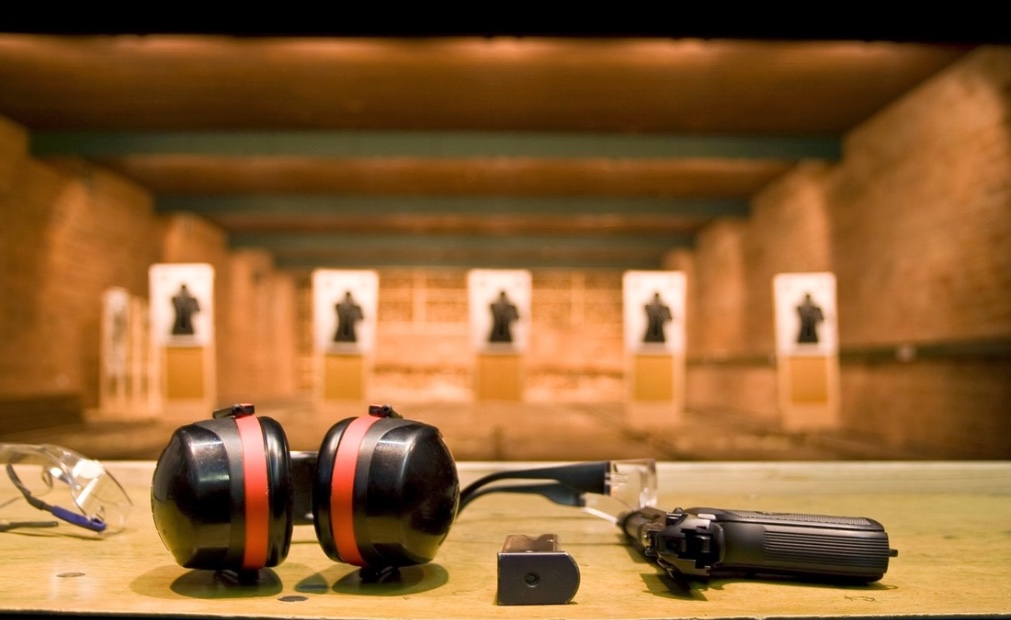7:30-8:10 am Registration & Breakfast
8:10-8:30 am Introduction:
Moderator - Daniel M. Landry, III, First Assistant District Attorney
Instructor - Caleb Morse, NRA Instructor
8:30-9:30 am Lesson 1 – Pistol Knowledge and Safe Firearm Handling
Learning Objectives:
As a result of this training exercise, participants should be able to:
- Identify the parts of a pistol and revolver, their nomenclature, types of action, and demonstrate how each functions
- Name, elaborate and adopt the NRA and Jeff Coopers rules for safe firearm handling and operation
- Demonstrate how to handle a pistol in a safe and efficient manner
9:30-10:30 am Lesson 2 – Child and Unauthorized Person Access Prevention (1 Hour CLE)
Learning Objectives:
As a result of this training exercise, participants should be able to:
- State the importance of preventing children and restricted persons from accessing firearms, and applicable Louisiana law
- Identify three ways that children can be prevented from accessing firearms
- Access the various ways that child access can be prevented and determine which ways are best suited for each participant
- Describe the value of redundancy in a security regimen
- Resolve to implement an effective child access prevention strategy with respect to firearms under their control
- Appreciation for child firearm education and firearm access prevention
10:30-10:45 am Break
10:45-11:45 am Lesson 3 – Ammunition Knowledge and the Fundamentals of Pistol Shooting
Learning Objectives:
As a result of this training exercise, participants should be able to explain:
- The different components of a metallic cartridge
- The firing sequence of a cartridge
- How to properly store ammunition
- The major types of cartridge malfunctions and how to handle them safely
- The fundamentals of pistol shooting
11:45 am-12:30 pm Lunch (Provided)
12:30-3:30 pm Lesson 4 – The Use of Deadly Force and Conflict Resolution (3 Hours CLE)
Learning Objectives:
As a result of this training exercise, participants should be able to explain:
- The ODDA loop, situational awareness, and how to avoid potentially confrontational situations
- Jeff Cooper’s system of color codes that describe personal levels of awareness
- How body language and eye contact can prevent and/or DE-escalate a potentially confrontational situation
- What conduct is justified under LRS 14:18-14:22 and how the reasonable person standard can be applied
- Justification Theory under the Competing Harms doctrine
- What less than lethal options are available and when these options may be appropriate
Legal Roundtable – Criminal Liability for Use of Force, Civil Liability for Use of Force, Applicable Louisiana Laws on 2nd Amendment and Other Laws Concerning Ownership of Weapons (3 Hours CLE)
Speakers:
- Daniel M. Landry, III, First Assistant District Attorney
- Alan Haney, Assistant District Attorney
- Randall McCann, Public Defender
- Special Appearances by Members of Law Enforcement
3:30-3:45 pm Break
3:45-4:45 pm Lesson 5 – Handgun Shooting Positions and Purchasing Regulations (1 Hour CLE)
Learning Objectives:
As a result of this training exercise, participants should be able to:
- Demonstrate the knowledge, skills, and attitude necessary to safely and accurately shoot a handgun from a bench rest, two hand standing, and one hand standing positions
- Properly score a pistol target
- Federal and State guidelines for purchasing a pistol and ownership
4:45-6:00 pm Break (Practice Shooting for Qualification)
6:00-7:00 pm Lesson 6 – Range Firing and Pistol Cleaning
Learning Objectives:
As a result of this training exercise, participants should be able to:
- Shoot targets safely from the two/one handed standing position
- Hit the silhouette area of a B-27 target with a 100% hit ratio with 36 shots fired; 12 rounds each at 6 feet, 10 feet, and 15 feet, while performing at least one safe reload at each distance
- Identify the materials and explain the process needed to clean a pistol safely and correctly
- Safely and correctly clean a pistol

